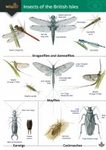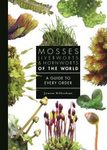By: Robert Dudley(Author)
476 pages, Col photos, illus, figs, tabs
![The Biomechanics of Insect Flight The Biomechanics of Insect Flight]()
Click to have a closer look
About this book
Contents
Customer reviews
Biography
Related titles
About this book
From the rain forests of Borneo to the tenements of Manhattan, winged insects are a conspicuous and abundant feature of life on earth. Here, Robert Dudley presents the first comprehensive explanation of how insects fly. The author relates the biomechanics of flight to insect ecology and evolution in a major new work of synthesis.
The book begins with an overview of insect flight biomechanics. Dudley explains insect morphology, wing motions, aerodynamics, flight energetics, and flight metabolism within a modern phylogenetic setting. Drawing on biomechanical principles, he describes and evaluates flight behavior and the limits to flight performance. The author then takes the next step by developing evolutionary explanations of insect flight. He analyzes the origins of flight in insects, the roles of natural and sexual selection in determining how insects fly, and the relationship between flight and insect size, pollination, predation, dispersal, and migration. Dudley ranges widely – from basic aerodynamics to muscle physiology and swarming behaviour – but his focus is the explanation of functional design from evolutionary and ecological perspectives.
The importance of flight in the lives of insects has long been recognized but never systematically evaluated. This book addresses that shortcoming. Robert Dudley provides an introduction to insect flight that will be welcomed by students and researchers in biomechanics, entomology, evolution, ecology, and behaviour.
Contents
Acknowledgments ix
Symbols xi
Chapter One. Flight and the Pterygote Insecta 3
Chapter Two. Morphology of the Flight Apparatus 36
Chapter Three. Kinematics and Aerodynamics of Flight 75
Chapter Four. Energetics and Flight Physiology 159
Chapter Five. Stability, Maneuverability, and Maximum Flight Performance 203
Chapter Six. Evolution of Flight and Flightlessness 261
Chapter Seven. Flight and Insect Diversification 302
Chapter Eight. Future Directions in Insect Flight Biomechanics 338
Glossary 353
References 361
Index 465
Customer Reviews
Biography
Robert Dudley is Professor of Biomechanics and Comparative Physiology at the University of California, Berkeley, and the author of numerous articles on the biomechanics of insect flight. He is also a Research Associate at the Smithsonian Tropical Research Institute in the Republic of Panama.
By: Robert Dudley(Author)
476 pages, Col photos, illus, figs, tabs
– Winner of the 2000 Award for Best Professional/Scholarly Book in Biological Science, Association of American Publishers
"Robert Dudley has written a remarkably comprehensive account of our knowledge of insect flight [...] No other recent book covers the field so fully ."
– R. McNeill Alexander, Nature
"An exhaustive compendium of everything known about insect flight, the hows, whys, and evolution. Dudley cites almost 2000 works, making this an effective reference to two centuries of work."
– New Scientist
"Somewhat unusually for such a broad-scope book, Dudley fully addresses all three aspects of the subtitle. He has packed it with a plethora of interesting facts, observations, and questions that should interest a wide audience."
– Graham W. Elmes, The Times Higher Education Supplement
"This book explores the topic in encyclopedic fashion [...] [It] covers much more than the title implies."
– John S. Edwards, New Biological Books
"This book explores the topic in encyclopedic fashion with a copious treasury of references and a welcome respect for the history of the subject [...] A valuable resource."
– John S. Edwards, Quarterly Review of Biology
"The paperback issue of Biomechanics of Insect Flight is a worthwhile book for investigators of any aspect of insect biology, a necessary book for those in the field of animal flight, and certainly a valuable reference book for the casual reader."
– James Usherwood, Journal of Experimental Biology
"This work is a remarkable accomplishment, something never before even attempted [...] Especially noteworthy are the remarkable way it combines biomechanical with ecological and evolutionary thinking and the extent to which it brings in non-English literature [...] It will have a long and useful life."
– Steven Vogel, Duke University, author of Life in Moving Fluids: The Physical Biology of Flow and Life's Devices: The Physical World of Animals and Plants
"This is an excellent book, without any serious competitors [...] Particularly impressive is the range of Robert Dudley's knowledge and understanding of the many aspects and of the literature of this fascinating, complex subject. He covers physiology, functional morphology, paleontology, aerodynamics, behaviour and ecology with almost equal confidence and authority [...] and the book excels as a synthesis of all these fields, and as a unique source of information on the subject as a whole."
– Robin Wootton, University of Exeter
"Robert Dudley provides a thorough review and synthesis of the literature on insect flight. The book is timely in several respects [...] It will serve as an excellent example of how the fields of biomechanics and evolution can be productively and rigorously combined."
– Mark Denny, Stanford University, author of Air and Water: The Biology and Physics of Life's Media and Biology and the Mechanics of the Wave-Swept Environment

































